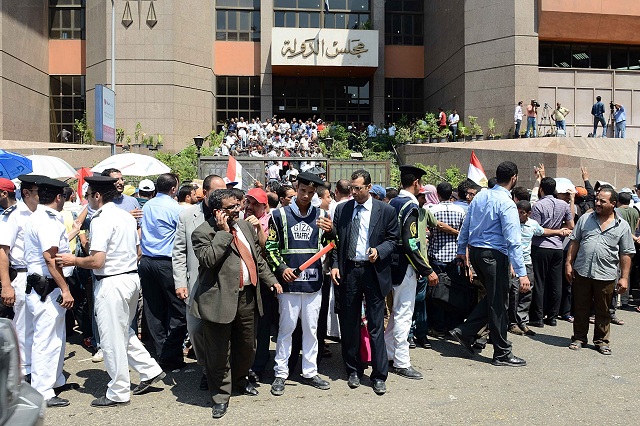CAIRO: Only 38 percent of Egyptians are aware of e-government services that circumvent lengthy bureaucratic procedures, despite government and civil society efforts to promote it, a government survey showed.
The survey, conducted by the Egyptian Cabinet s Information and Decision Support Center (IDSC), revealed that this percentage is an improvement in comparison to only 21 percent in 2005.
“The internet is not only a way for the citizen to get their services completed easier, it is also a way for them to express their opinion and become involved in the decision-making process, Minister of Administrative Development Ahmed Darwish said.
“The ultimate goal of any government is to satisfy its citizens, he added.
According to Darwish, the e-government program saves LE 600 million of government funds as well as eliminates corruption and bureaucracy, according to IDSC.
The e-government program was launched in July 2001 to improve efficiency and accelerate the pace of rendering services, in addition to modernizing the way the public interacts with governmental entities.
The online government services were activated in January 2004.
The Public Opinion Poll Center, under the IDSC, has been conducting a series of surveys to gauge public opinion of e-government services. The surveys were conducted during March of the years 2005, 2006, 2007, 2008 and 2009.
Nationwide, 1,267 respondents over 18 took part in the survey.
According to the polls done through the past five years, the use of e-government services was “generally low.
The number of respondents using e-government services declined to 30 percent in 2009 in comparison to 35 percent in 2007 and 37 percent in 2008.
The most widely used e-government services reported by respondents in the all five polls are inquiring about and paying telephone bills and getting thanaweya amma results.
The number of respondents using e-government services to pay or inquire about their telephone bill ranged between 71 and 84 percent in the five polls, while those who used them to get their thanaweya amma results ranged between 18 and 65 percent.
The majority of the respondents, counting for more than half, who use e-services rated them as “good in all five polls. On the other hand, 18 percent encountered problems with the services; the highest problem reported being the slow loading of web pages.
Ninety-four percent of those who use e-services said that they are “far better than conventional channels.
Two-thirds of respondents expressed willingness to use e-government services in the future. Phone bill payment topped the list of services they would use online, while inquiring about or paying electricity bills ranked second.
One respondent, a 45-year-old man from Daqahleya, thinks that in order to raise the number of users, “services must cover governorates nationwide and not just Cairo and Alexandria.
Non-governmental organizations (NGOs) play a particularly active role in raising awareness of e-government services among citizens, which allows the Ministry of Administrative Development to allocate their resources to other projects.
The Egyptian Non-governmental Organizations Support Center is currently working on a project titled “Raising Awareness of E-Government Services.
The center, whose mission is to have an effective civil society in Egypt, is working with different NGOs in Egypt and training them to raise awareness on e-government services in their areas.


